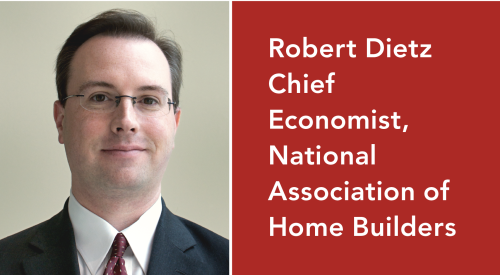Which came first? Falling home prices? Or decreasing consumer confidence in home values?
The correct answer, of course, is falling home prices. Prices dropped after the ridiculous run-up to overpriced housing. The fall was as natural and as steep as a stone drop. And just as natural was the clucking of the Chicken Little press, who ran around reporting the plummeting prices with glee. That's what the press does, unfortunately, but the reports abetted the unfettered freefall of consumer confidence.
On the sidelines during all of this: the government. It did nothing to corral the silly mortgage programs. It did nothing to slow the trading of complex financial packages on the secondary markets. It did nothing to push ratings agencies to break open those packages and shed light on what was really being hawked.
The government did nothing, which is exactly what we would all prefer. After all, if we want government involvement in ensuring brokerages don't get overleveraged, shouldn't we also expect it to be involved in ensuring homeowners are protected from fire through the use of sprinklers?
Oh, this government involvement is a slippery slope. The reality is, of course, the government is always involved. We are a democracy first. That's what our founders created. We thrive because of a free market economy, but it is democracy that represents all of us.
If we accept that, we acknowledge that our represented government must be involved in the commonweal. Right now the commonweal is commonpoor.
It just so happens that those of us in the housing industry, through our huge impact on the health and well-being of the whole country, have an unusual burden and necessity for government involvement. The NAHB has asked Congress to help jump-start the U.S. housing industry. The association has asked for two things:
1. A 10-percent home buyer tax credit that caps at $22,000.
2. An interest-rate buy-down that will get 30-year mortgages down to 2.99 percent.
NAHB wants Congress to move quickly to give consumer confidence a shot in the arm. The hope is that enough juice in the shot will send buyers into the market to buy homes. That will stem the tide of falling home prices, feeding more confidence. The turnaround will reduce inventories and get us back in the business of home building.
All of that will happen without government involvement. Prices stabilize, consumers gain confidence and inventories drop. But do we want to play chicken with the potentially devastating global effects of a slow rebound? No. We need the government to act now.










